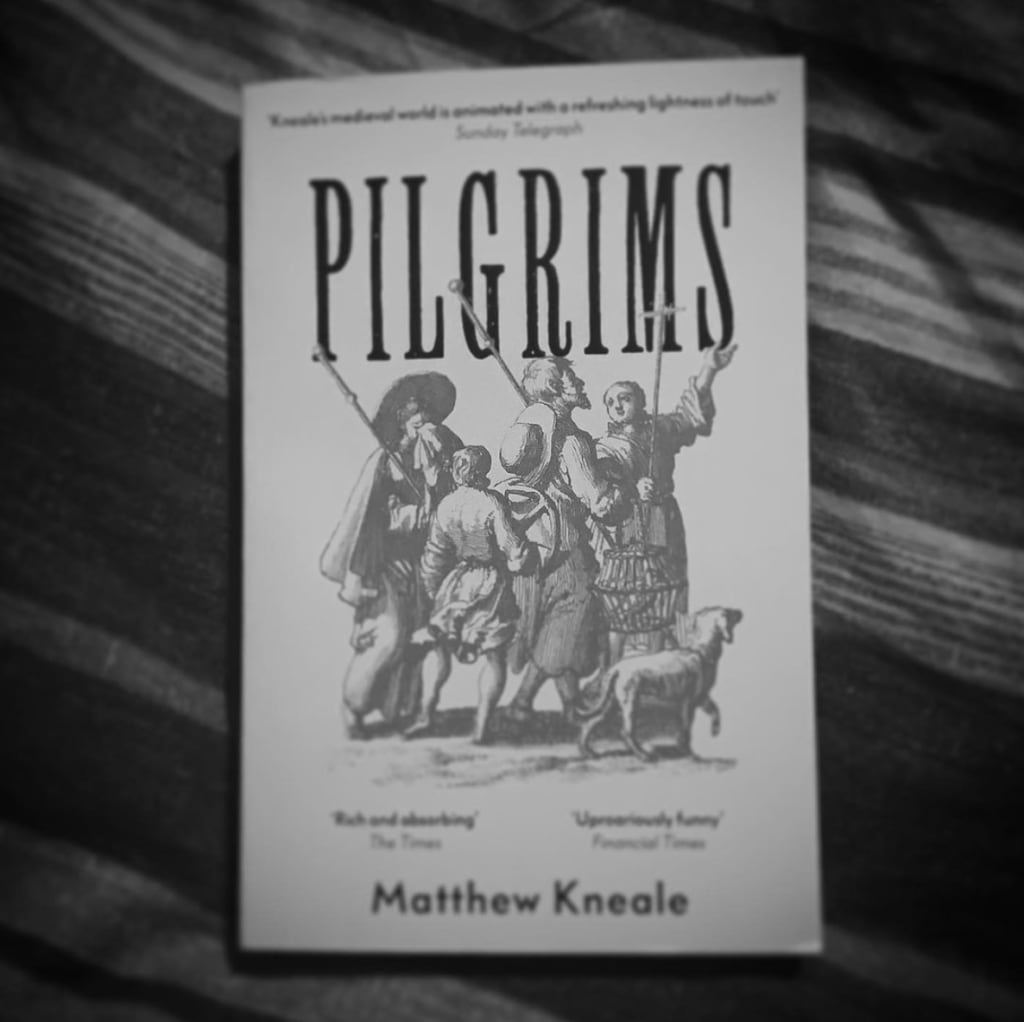Book Review: "Pilgrims" by Matthew Kneale
5/5 - Make it Chaucer, but modern satire of the self...

I have read many books influenced by other works and most of them have been via classic literature and folklore. Christina Henry’s books influenced by “Alice in Wonderland” and “Peter Pan”, Gregory Maguire’s books influenced by L.Frank Baum’s “The Wizard of Oz” as well as others influenced by Baum’s novels including “Dorothy Must Die” by Danielle Page and the next in that series, “The Witch Must Burn”. From other classic literature, there has been many including the series inspired by “The Iliad” by Mary Renault or the series inspired by “The Iliad’ by Madeline Miller. From this, I have gotten used to reading things inspired by other things, poetry and books alike and really, reading something that was inspired by Chaucer’s “The Canterbury Tales” is really refreshing as I have never encountered something like it before.
This book starts off with a really strange story about a guy called Simple Tom who is wondering whether his dog has gone to Heaven when the dog dies in an accident. He decides to go on pilgrimage to Rome and the story builds from there. There are many characters going on pilgrimage to Rome alongside him including people who are probably going for some more selfish reasons in order to afflict people with bad things or to get revenge by praying to god do to something to them. This book really does show us something that Chaucer’s original stories in “The Canterbury Tales” also show us; it is that people go to certain places associated with their upbringings for different reasons. Some have been there before, some only know it from a faraway legend told by parents on special Sundays, some are going out of their own personal motivations and whether those motivations are out of good, bad or pure curiosity do not seem to matter when it comes to going as a group. There are so many different people in both books and within this text by Matthew Kneale, I think that though it is set in the 1200s still, it has really been brought further forward in order to feel closer to ourselves than Chaucer does. Even though there are many instances of Medieval language in Matthew Kneale’s book - it does not feel too Medieval to read. In fact, it is more of a joy to read as the language has been crafted to make the story both satirical and beautiful at the same time.
The writing style is something I found really enjoyable because of the way in which it connects with the satire of the modern day. We are known for satirising ourselves and our upbringings, our beliefs and concepts, ideas and states of mind. This is probably the most modern thing about this book and blended with the Medieval writing style, this makes for a genuinely funny, heartwarming and often incredibly thoughtful reading process. We get this amazing crossover between our lives and theirs and thus, we are able to connect with the lives in the 1200s far better than we ever thought we could.
In conclusion, I would love to read a book like this again. It is a brilliant example of being able to make something that is already great (Chaucer’s “Canterbury Tales”) inspire something that is becoming great (this reviewed book). It not only brings Chaucer’s work into the modern day with these modern day satirisation of morality through various characters, there is also the question of originality in which this story is told. There are huge amounts of Medieval research that have gone into the writing of this book and I must have sat down and read it for flat out three or four hours flat after having to put it down to do housework. If you too are interested in literary history, you will not regret reading this book at all. It is mind-blowing.
About the Creator
Annie Kapur
200K+ Reads on Vocal.
English Lecturer
🎓Literature & Writing (B.A)
🎓Film & Writing (M.A)
🎓Secondary English Education (PgDipEd) (QTS)
📍Birmingham, UK






Comments
There are no comments for this story
Be the first to respond and start the conversation.